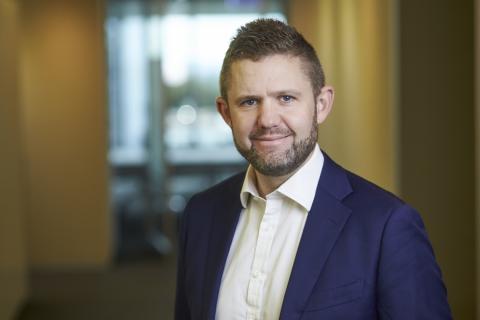The Pindan Group commenced operations in 1977 and operated a multi-disciplinary construction and property development business predominantly in WA.
Prior to our appointment the Pindan Group was suffering financially as a result of Covid-19 related business disruptions, some key historical loss-making contracts, competitive market conditions, an inability to service legacy debts, and the withdrawal of its bonding facilities (making the ability to win new work challenging). Shortly before the external administrations, management explored a recapitalisation transaction that was not able to be secured, after which, the Directors decided to appoint Sam Freeman, Vincent Smith, and Colby O'Brien as Joint and Several External Administrators of 12 entities within the Group.
Of the 12 entities that entered external administration, 3 originally entered voluntary administration (“VA”) and 9 entered creditors voluntary liquidation.
The strategy for each of the entities differed depending on the saleability of the individual businesses, realisable assets and the willingness of clients to continue to utilise Pindan services.
Pindan Asset Management (“PAM”)
PAM, a key trading entity within the Group, undertook maintenance on the WA Housing Authority's (“HA”) c.6,500 properties and two other smaller contracts. The properties for maintenance services were predominately in remote and rural locations often with vulnerable tenants.
PAM entered Voluntary Administration (“VA”) largely as a result of the failure of the wider Pindan Group, with joint financial obligations and a centralised treasury.
The EY team was responsible for the trading operations and undertook an urgent financial analysis to understand the viability of the business. Mindful of the importance of ongoing service delivery for the safety and wellbeing of the community the engagement team worked closely with PAM’s leadership team and Government to develop a plan for the short term operation of the business whilst funding issues were resolved and a restructure was explored and an ultimately an accelerated sale process was completed.
EY’s strength of relationship with the State Government and the team’s ability to build rapport and trust with PAM’s leadership team were essential to the success of the engagement.
The accelerated and targeted sales process, included the identification of preferred bidders that would be acceptable to the contract counterparties as this support was critical to securing support for the contracts to remain alive and value to be retained. Following the assessment of indicative offers a preferred bidder was identified and this party entered into a short license agreement allowing them to operate g which the business was conducted by the licensee. This facilitated a funded and de-risked trading whilst the sale was concluded.
The preferred bidder subsequently put forward a Deed of Company Arrangement (utilising a creditors trust), which is a flexible restructuring mechanism enabling the acquisition of PAM’s shares and providing funds to be applied to legacy creditor claims in return for a release of claims thereby leaving the company with a clean balance sheet.
Creditor approval was required for the transaction to complete (which was recommended by the Administrators) and a subsequent court application was required for conditions precedent to be met which included the novation and extension of the HA service contract and transfer of PAM’s shares to Programmed.
The work undertaken by the EY team enabled an important WA business, which provided services to vulnerable rural communities, to continue as a going concern.
By restructuring and rescuing the business from insolvency, c.100 employees retained their jobs who otherwise would have been made redundant. The business continues to deal with subcontractors who had financial reliance on PAM continuing into the future.
EY’s role is now to finalise a dividend to creditors of PAM’s creditors trust, which is expected to be in excess of c.90 cents in the dollar and paid by the end of 2022.
Successfully negotiating a significant settlement with shareholders with respect to the other Pindan entities
On appointment, the external administrators had limited funding available and therefore were left with little option but to terminate the majority of employees. As such, existing construction, development and management contracts could not be completed.
The EY team has undertaken significant work in realising assets, including significant property assets, plant and equipment and vehicles, as well as shareholdings in SPV’s and dealing with various disputes on large construction projects.
The external administrators identified claims against the ultimate parent entity, a listed Singaporean company and the Pindan directors in respect of claims arising out of the letter of support issued to the Pindan Group in October 2020, insolvent trading and/or a breach of directors duties’. Details of the claims have been provided to creditors in various reports issued by the external administrators. The claim in respect of the letter of support was estimated at c.$52m, before realisation costs.
The claims were settled and DOCA’s were agreed by two key entities. The balance of the entities are in the process of being liquidated.
As a result of asset realisations, the settlement monies and a DOCA contribution, all employees have received their entitlements in full and a dividend is expected to be paid in five of the entities.


